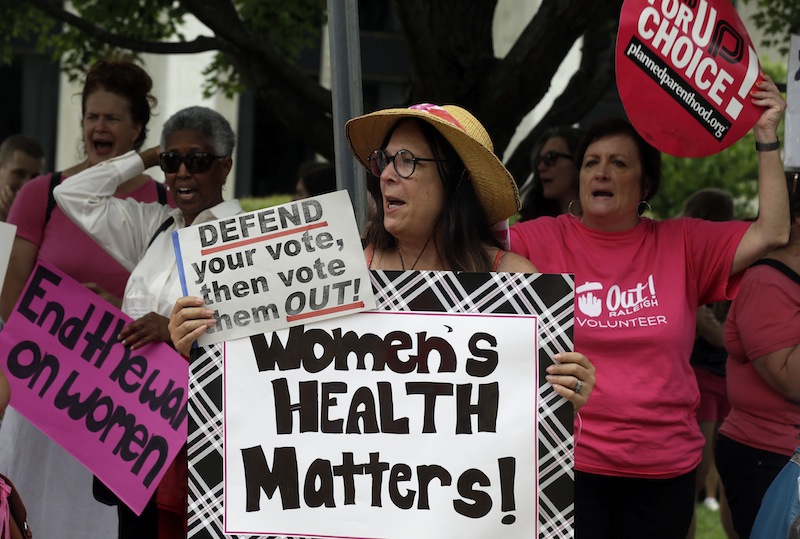RALEIGH, N.C. (AP) — North Carolina Gov. Pat McCrory on Monday signed into law a measure directing state officials to regulate abortion clinics based on the same standards as those for outpatient surgical centers, a change that critics say will force most to close.
Critics say the move represents a shift by the first-year Republican executive, who pledged as a candidate last fall that he wouldn’t approve any new abortion restrictions if elected.
“We are appalled that Gov. McCrory broke his campaign promise and we will do everything in our power to let the women of North Carolina know they cannot trust him to stand up to lawmakers intent on denying women access to safe and legal abortion,” said Paige Johnson, a spokeswoman for Planned Parenthood Action Fund of Central NC.
McCrory, however, said he wasn’t limiting access to the procedure, but rather was signing a measure that “will result in safer conditions for North Carolina women.”
“This law does not further limit access and those who contend it does are more interested in politics than the health and safety of our citizens,” McCrory said in a statement.
The measure was passed by the Republican-majority legislature in the session’s waning days.
Critics say the move will effectively close most of North Carolina’s 16 abortion clinics because only one now meets the standards of an outpatient surgical center. An ambulatory surgical center costs about $1 million more to build than an abortion clinic, the director of the state’s Division of Health Service Regulation told lawmakers earlier this month. It’s unclear how much it would cost existing clinics to convert to higher standards once they are set by DHHS.
Abortion rights supporters demonstrated outside the governor’s executive mansion in a last-ditch effort to get him to veto the legislation.
Existing abortion clinic regulations haven’t been changed since the mid-1990s, Dr. Aldona Wos, the state Health and Human Services secretary, said earlier this month. About half of states now require abortion facilities to meet standards intended for ambulatory surgical centers, according to the Guttmacher Institute, which tracks restrictions on abortion rights.
The law also prohibits abortions for gender selection and allows any health care provider to opt out of participating in abortions, extending that option beyond doctors and nurses. The measure also prohibits abortion coverage in insurance plans offered by cities, counties or the online marketplace for private policies being established under the federal health overhaul law.
Abortions would be allowed if a pregnancy were the result of rape or incest, or to save the life of the mother.
Copyright 2013 The Associated Press.









